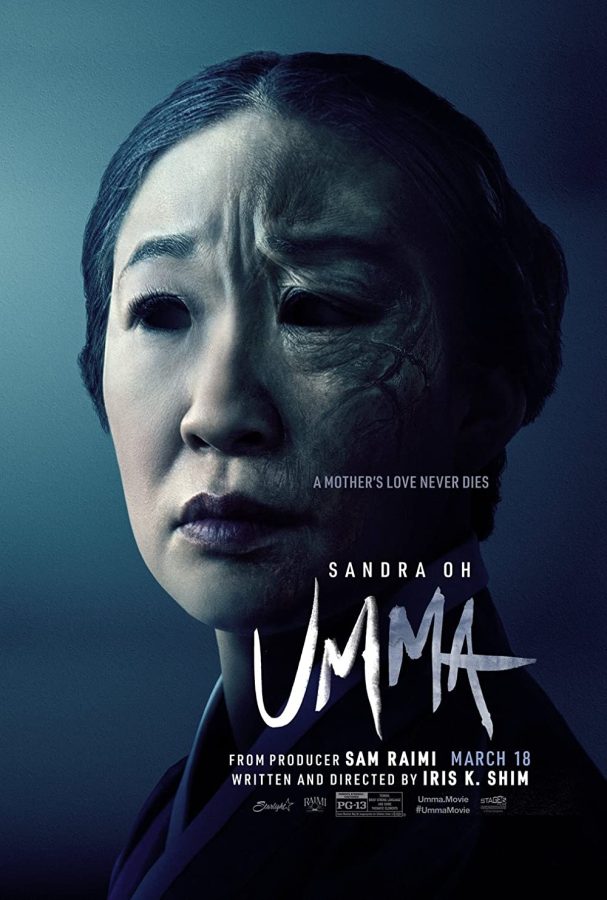I expected more from horror film ‘Umma’
“Umma” stars Sandra Oh, and was released on March 18.
Just one week after “Turning Red,” another film starring Sandra Oh as an overbearing mother was released.
“Umma” is a horror film inspired by Oh’s Korean culture and experience of being raided by immigrant parents. I think the film has some good ideas, however, they are bogged down by terrible execution.
In the film, Amanda (Sandra Oh) and her daughter Chris (Fivel Stewart) live as remote beekeepers that have sworn off the use of electricity because of Amanda’s allergy to electricity. Things begin to go wrong when a distant relative informs Amanda her mother has passed. Supernatural events then transpire and force Amanda to reconcile with her childhood trauma.
The main aspect I enjoyed about the film was its use of Korean culture and spirituality. Amanda’s trauma causes her to lock away a suitcase of her mother’s remains and possessions in her basement.
As a result of Amanda ignoring her heritage and refusing to give her umma a traditional burial, she begins to possess Chris and eventually Amanda herself. Umma’s ghost dons a traditional mask, or Tal and a Hanbok. The literal baggage of Amanda’s culture is hidden away or haunting her, and she only opens up after Chris becomes interested in it.
Unfortunately, this was the only aspect of the film that worked for me — a lot of the issues of the film stem from it being just a bad horror movie. The film is not scary, which I know is a bad metric to judge a film by but hear me out.
The film is entirely devoid of tension. There are frequent jumpscares punctuated with bad visual effects cheapening the premise of the film. A film that handles the difficult subject matter of parental abuse should probably treat it with more nuance.
Speaking of nuance, a film that covers the same topics as “Umma” far better is “Hereditary.” Both films have the matriarch of a family succumb to supernatural forces after the death of their mother, which causes them to reenact the traumas their mothers imposed upon them.
I don’t think “Umma” was made to be a PG-13 ripoff of “Hereditary,” but the thematic similarities between the two, so it feels fair to compare them. Speaking of comparisons, “Hereditary” handles its supernatural elements far better. For the most part, “Hereditary” slowly foreshadows its supernatural and cultish elements, making them more shocking when they show up in full force for the climax.
On the other hand, one of the first scenes in “Umma” shows a truck breathing the magic force field surrounding Amanda’s homestead, cheapening the film’s mental health message with corny CGI.
I suppose the similarities were inevitable as “Hereditary” and “Umma” both draw from some of the same influences. Aster himself has cited Korean horror as an inspiration, “I think my favorite horror movie in the last five years might be “The Wailing”, which is a brilliant South Korean horror film. I think South Korea has been juggling tones and genres in a wild way without ever losing coherency, in a way that feels utterly forward-thinking to me. I’ve been more excited about what’s happening in South Korea right now than anywhere else.”
In conclusion, go watch “Hereditary” or other Korean horror movies instead. I recommend The Host,” “The Wailing” and “Oldboy.” If, for whatever reason, you need a more tame and less ambitious version of any of these films, I suppose you can’t go wrong with “Umma.”
Rating: 3/10








